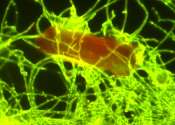Identification of individuals by trait prediction using whole-genome sequencing data
Researchers from Human Longevity, Inc. (HLI) have published a study in which individual faces and other physical traits were predicted using whole genome sequencing data and machine learning. This work, from lead author Christoph ...









